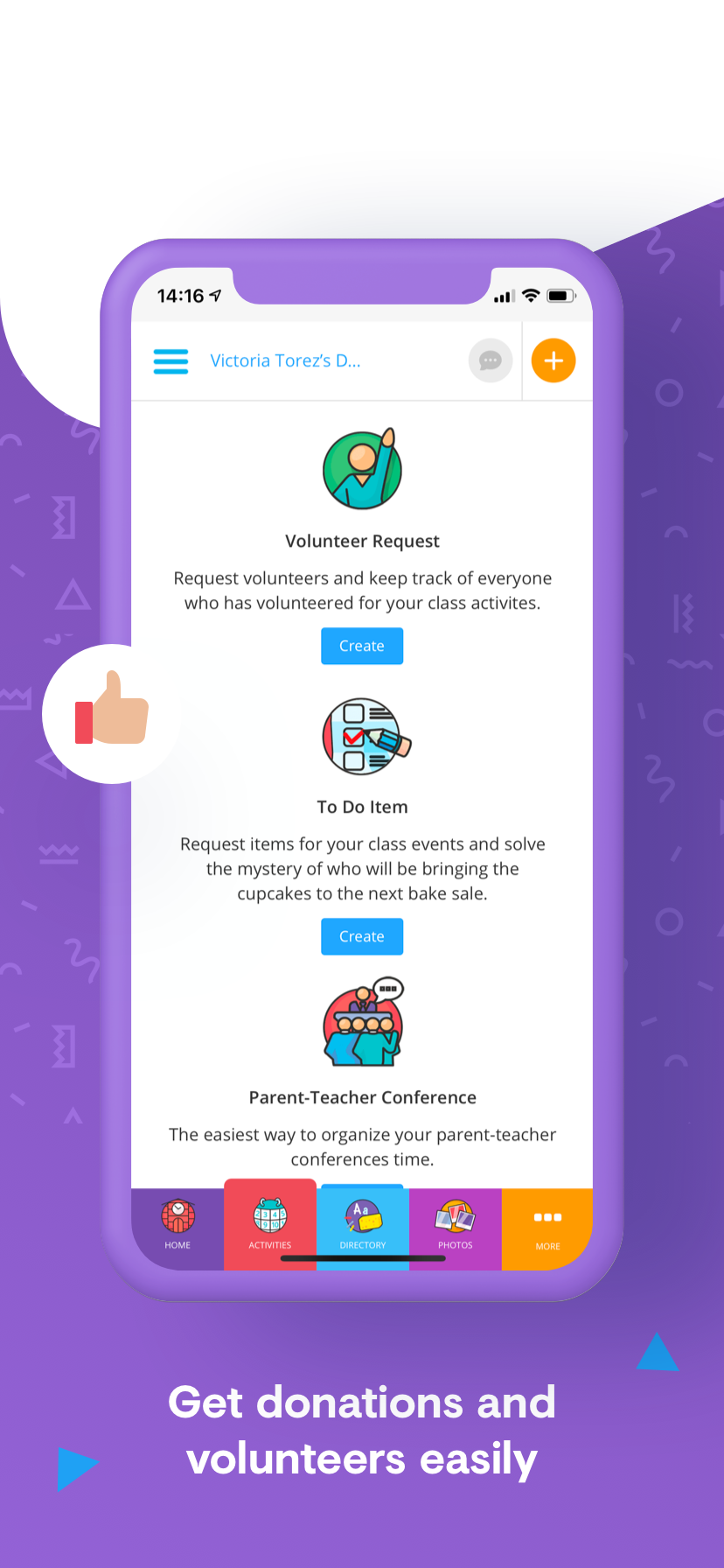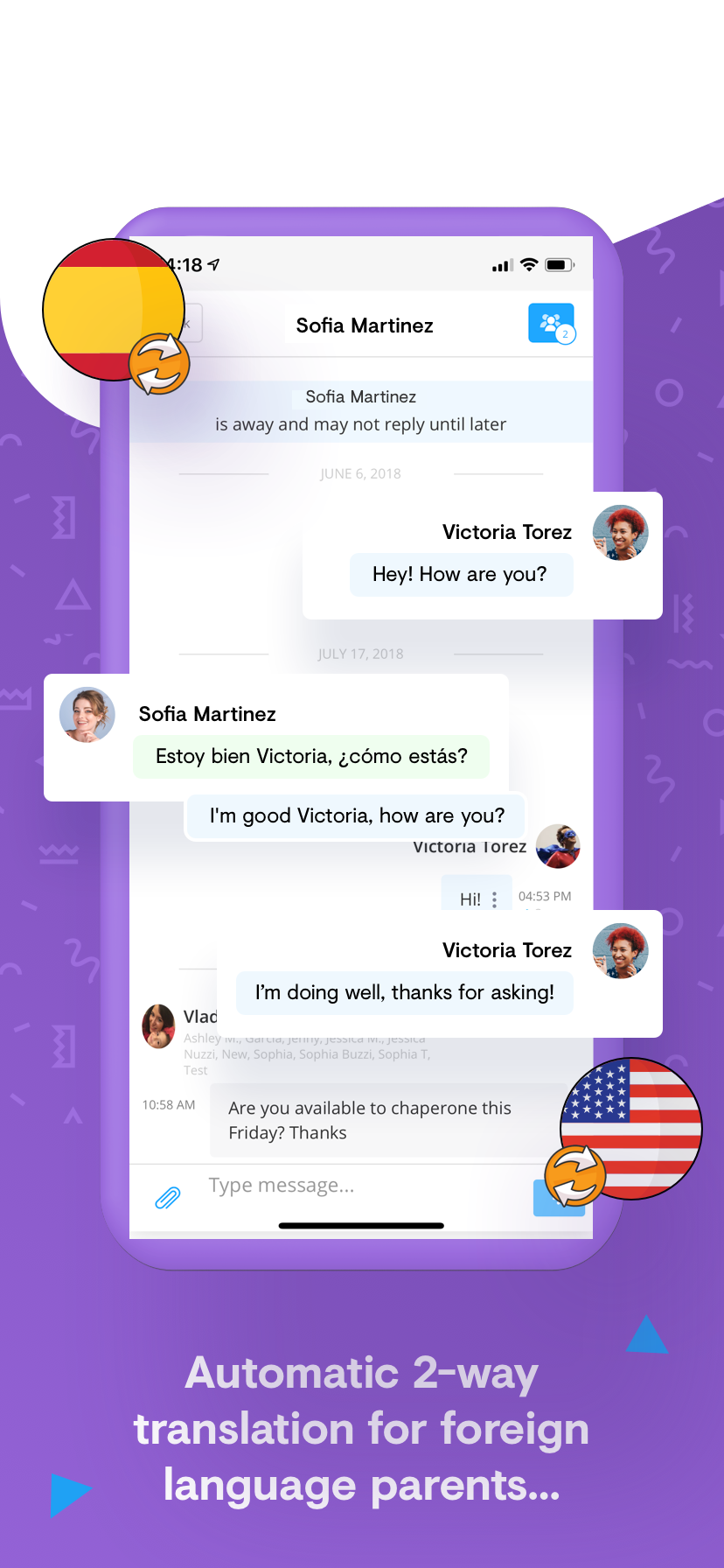Like many working parents, Vlada Lotkina, the founder and CEO of ClassTag, wanted to be more involved in her daughter’s preschool education. A paper notice about an upcoming field trip, squeezed between messy folders in a backpack, begged for smart technology around parent-teacher communication, she recalls.
Lotkina turned to other parents in the preschool class and found similar stresses. So, she teamed up with a fellow parent, Jason Olim, and launched ClassTag, a free parent-teacher communication platform that supports more than 60 languages.
Today, the company announced it has raised $5 million in seed funding from a group of investors that include AlleyCorp, Contour Ventures, Founder Collective, John Martinson, Newark Venture Partners, Smart Hub and TMT Investments. The platform says it has grown to 2 million users across 25,000 schools in the United States.
ClassTag has two end users: parents and teachers. Parents can use ClassTag for information on events, field trips, fundraisers and more. For teachers, ClassTag is an easy way to engage with parents, schedule parent-teacher conferences and share resources. Additionally, teachers can look at a parent engagement dashboard to see which families are more engaged, and which may need extra pings or attention.

With ClassTag, parents can get communications, without downloading an app, in their preferred channel via email, SMS, app, web or even paper if they are entirely offline. Any announcements or messaging will be automatically translated in numerous languages.

The company makes money by letting educational and family-friendly companies advertise on ClassTag. In general, an edtech platform pumping out advertisements might raise concerns for parents, but because ClassTag is not a platform for children, it is less controversial. ClassTag says it does not share any personally identifiable information with advertisers, but does share aggregated general data, like how many users are in certain grades or particular ZIP codes.
A portion of proceeds from brand revenue is also donated to classrooms for supplies. The company describes this brand relationship as “brands becoming sponsors versus advertisers.”
The simplicity of the platform is stress-tested by ClassTag’s other goal of ensuring access for any parent, regardless of socioeconomic class or work schedule. Even though the digital divide has slightly lessened, lower socioeconomic families may struggle with digital access beyond their phones. A parent who works an hourly job, therefore, might be easier to reach through text than through an email.
Another platform that tries to digitize classroom communications is ClassDojo, which is a communication platform for kids, students and parents. ClassDojo is used by 95% of schools in the United States.
Lotkina says that ClassDojo focuses more on the behavior aspect of kids. ClassDojo, for example, lets teachers give points to kids to help parents be alerted about behavior, and focuses on classroom engagement and management. ClassTag, by contrast, is more focused on information dissemination.
Lotkina, who is originally from Ukraine, began in the startup world at the age of 17. She traveled around Western Europe selling Ukrainian designers from a catalog. She then applied to the University of Pennsylvania’s Wharton School of Business, got accepted, and came to the United States. She says that starting a company in the United States is easier than in Ukraine because of investor risk in banking companies before they are profitable.
“On top of that, there’s obviously a lot of corruption and regulatory pressure that exists in Ukraine and many other countries. Unfortunately, creating an impactful business that solves a real problem is not enough to be successful in countries like Ukraine,” Lotkina said in a Medium post.
Two million users, and a fresh $5 million in funding later, Lotkina’s choice has been so far, so good.

